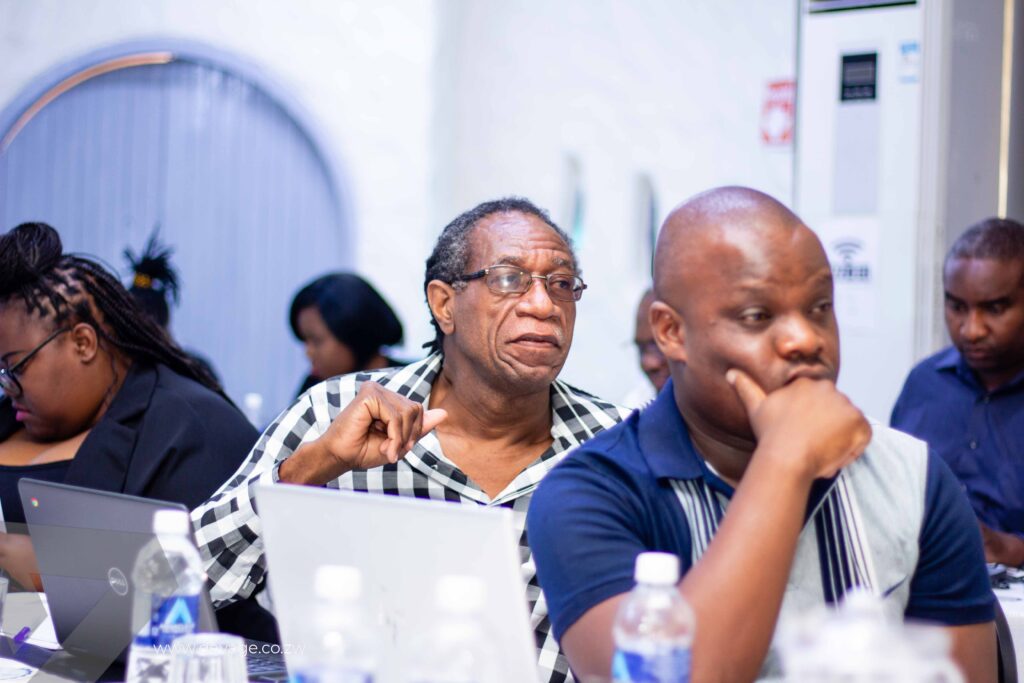While freedom of speech is a fundamental right, it is equally important for journalists to exercise caution and not inadvertently amplify hate speech.
Journalists Must Be Careful Not to Amplify Hate Speech

In an era where information spreads rapidly and news outlets play a crucial role in shaping public opinion, journalists bear a significant responsibility to report accurately and ethically. While freedom of speech is a fundamental right, it is equally important for journalists to exercise caution and not inadvertently amplify hate speech.
This is the call made by several speakers at the ongoing two-day post-election conference in Kariba hosted by Zimbabwe Online Content Creators (ZOCC), in partnership with UNEShttps://www.unesco.org/en/fieldoffice/harareCO and the Zimbabwe Media Commission. The conference is touching on hate speech, and how journalists can combat it and not amplify it.
Hate speech, defined as any form of communication that discriminates or incites violence against individuals or groups based on attributes such as race, religion, ethnicity, gender, or sexual orientation, has become increasingly prevalent today in Zimbabwe’s digital space. This has been more evident in the just-ended election season. The rise of social media platforms has provided a breeding ground for hate speech to flourish, making it crucial for journalists to navigate this complex landscape with care.

The first step in addressing this issue lies in the selection process of news stories. Journalists must be vigilant in distinguishing between legitimate news and hate speech disguised as news. Journalists can ensure they do not inadvertently amplify hateful narratives by avoiding sensationalism and focusing on verified facts from credible sources.
Addressing media practitioners UNESCO representative Al Min Yusuph emphasized the importance of responsible reporting from verified sources to avoid perpetrating hate and negative notions.
” Ethical reporting means adhering to truthfulness, fairness, accuracy, balance, objectivity, independence and accountability. It also means avoiding sensationalism, bias, distortion, manipulation, propaganda and misinformation,” she said.
Furthermore, responsible reporting involves providing context and analysis when covering hate speech incidents. Merely presenting inflammatory statements without proper context can contribute to the spread of hatred and misinformation. Journalists should strive to provide a balanced perspective by including diverse voices that challenge hateful ideologies while upholding ethical standards.
Another critical aspect is avoiding amplifying hate speech through headlines and social media shares. Sensationalized headlines can attract attention but may also perpetuate harmful stereotypes or promote divisive narratives. By crafting accurate yet informative headlines that do not sensationalize or glorify hate speech incidents, journalists can contribute to fostering a more inclusive society.

Moreover, journalists should be cautious about providing platforms for individuals who propagate hate speech. While it is essential to report on newsworthy events involving hate speech perpetrators, giving them excessive airtime or publicity can inadvertently amplify their message. Striking a balance between reporting on such incidents while minimizing the platform given to hate speech proponents is crucial.
Toneo Rutsito the ZOCC Chairman states that the “media holds the power to shape national narratives, and this can only be enhanced by trained and ethical content creators who have a national mandate to provide accurate information and education.”
In conclusion, journalists play a pivotal role in shaping public opinion and have a responsibility to report accurately and ethically. By being mindful of the potential consequences of amplifying hate speech, journalists can contribute to combating hatred and fostering a more inclusive society. Responsible reporting involves careful selection of news stories, providing context, avoiding sensationalism, and minimizing the platform given to hate speech perpetrators.

